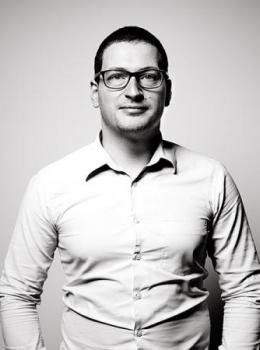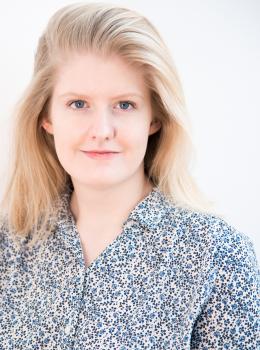Transatlantic Cyber Forum
Cyber security and defense policies increasingly gain importance and momentum worldwide. Issues, such as the regulation of state surveillance, encryption policy and vulnerability exploitation, implications of emerging technologies, cooperation and coordination in the information security realm as well as offensive cyber operations, have implications for the domestic and international spheres alike. Those are global challenges which cannot adequately be addressed from a singular nation-state perspective. It is therefore prudent to learn from each other and develop smart and pragmatic solutions together. The United States as the global technology leader and Germany as a central stakeholder of the European Union with a distinct security and privacy culture and mindset play a major role in providing answers to those challenges.
To further research in the area of international cyber security policies and provide concrete policy recommendations, the Stiftung Neue Verantwortung (SNV) established The Transatlantic Cyber Forum (TCF) in January 2017. TCF was founded with the financial support of the Robert Bosch Stiftung and the William and Flora Hewlett Foundation. It is currently funded by the William and Flora Hewlett Foundation.
TCF is an intersectoral network and currently consists of more than 150 experts from civil society, academia, industry, and government agencies working in various areas of transatlantic and international cyber security policy.
The following was previously the focus (in chronological order):
- Use of surveillance software by law enforcement agencies
- Government disclosure decision processes
- Securing elections
- Technological innovation for intelligence surveillance control
- Securing machine learning applications
- Protection of the machine learning supply chain
- Government's role in securing Open-Source Software
- Cybersecurity support deployment
- Responsible active cyber defense operations
The work was conducted by working groups with 30-50 experts each through online and face-to-face workshops in Berlin and Washington D.C., and through online collaboration.
Working Group: Responsible Vulnerability Disclosure and Mitigation Sharing
In 2024, the TCF Network focuses on the topic of "Responsible Vulnerability Disclosure and Mitigation Sharing" to present concrete implementation recommendations for "Norm (j)" of the UN norms of responsible state behavior in cyberspace. This project is made possible by the generous support of the German Federal Foreign Office. The working group currently consists of:
| Charles-Pierre | Astolfi | |
| Manuel | Atug | HiSolutions |
| Christoph | Bausewein | Crowdstrike |
| Ralf | Benzmüller | G DATA Cyberdefense AG |
| Gregor | Bransky | Innovationsverbund Öffentliche Gesundheit e.V. |
| Jack | Cable | U.S. Cybersecurity and Infrastructure Security Agency (CISA) |
| Johannes | Clos | European Union Agency for Cybersecurity |
| Betsi | Cooper | Aspen Tech Policy Hub |
| Alan | Duric | |
| Lars | Fischer | University of Applied Sciences Bremerhaven |
| Kenneth | Geers | Atlantic Council |
| Max | Heinemeyer | Darktrace |
| Yorck | Hesselbarth | London School of Economics |
| Thorsten | Holz | CISPA Helmholtz Center for Information Security |
| Anastasiya | Kazakova | DiploFoundation |
| Carolin | Kemper | Deutsches Forschungsinstitut für öffentliche Verwaltung |
| Adam I. | Klein | Robert Strauss Center for International Security & Law, University of Texas Law School |
| Andreas | Kuehn | ORF America |
| Susan | Landau | Tufts University |
| Klaus | Landefeld | eco - Verband der Internetwirtschaft |
| Thomas | Lawson | AXA |
| Andreas | Lehner | DCSO |
| Lisa | Lobmeyer | HiSolutions AG |
| Eugenia | Lostri | Lawfare Institute |
| Igor | Mikolic-Torreira | Center for Security and Emerging Technology (CSET) at Georgtown University |
| Greg | Nojeim | Center for Democracy & Technology |
| Lukasz | Olejnik | Independant Researcher and Consultant |
| Alexandra | Paulus | |
| Pavlina | Pavlova | Cyber Peace Institute |
| Riana | Pferfferkorn | Stanford Internet Observatory |
| Jörg | Pohle | Alexander von Humboldt Institute for Internet and Society |
| Rainer | Rehak | Weizenbaum Institute for the Networked Society |
| Thomas | Reinhold | TU Darmstadt |
| Christine | Runnegar | Internet Society |
| Gudio | Schulte | German Armed Forces |
| Ari | Schwartz | Venable |
| Chinmayi | Sharma | Rober Strauss Center for International Security and Law, University of Texas |
| Aleksandra | Sowa | Gesellschaft für Informatik (GI), FG PET |
| Rob | Spiger | Microsoft |
| Tara | Tarakiyee | Sovereign Tech Fund |
| Tassilo | Thieme | Federal Office for Information Security |
| Harry | Toor | OpenSSF |
| Eric | Veith | Carl von Ossietzky University Oldenburg |
| Julian-Ferdinand | Vögele | Recorded Future |
| Eric | Wenger | Cisco |
| Tarah | Wheeler | Red Queen Dynamics |
| JD | Work | National Defense University & Columbia University |
| Paul | Zenker | NSIDE ATTACK LOGIC GmbH |
The following publications have been supported by the Transatlantic Cyber Forum:
- Policy Brief - Active Cyber Defense: Toward Operational Norms
-
Policy Brief - Cybersecurity Support Deployments: An Emerging Cooperative Approach
-
Policy Brief - Active Cyber Defense Operations: Assessment and Safeguards
-
Policy Brief - Securing Artificial Intelligence (Part 2) - Understanding the Security Implications of the Machine-Learning Supply Chain
-
Policy Brief - Securing Artificial Intelligence (Part 1) - The attack surface of machine learning and its implications
-
Policy Brief - Governmental Vulnerability Assessment and Management
-
Policy Brief - A Framework for Government Hacking in Criminal Investigations
-
Policy Brief - Securing Democracy in Cyberspace: An Approach to Protecting Data-Driven Elections
-
Policy Brief - Cyber Operations: Defending Political IT-Infrastructures
-
Policy Brief - Government Hacking: Computer Security vs. Investigative Powers
-
Statement - Initial Take-Away: Encryption Policy and "Government Hacking"
In addition to the publications, the TCF project team at SNV provides the expert network with short updates (called "policy debates") which identify and discuss German cyber security policy developments.
The TCF project team regularly engages in events and presentations including the Congressional Cybersecurity Caucus, the European Parliament and the German Bundestag and is cited in national and international media including leading German media outlets as well as for example the New York Times and the Washington Post.

